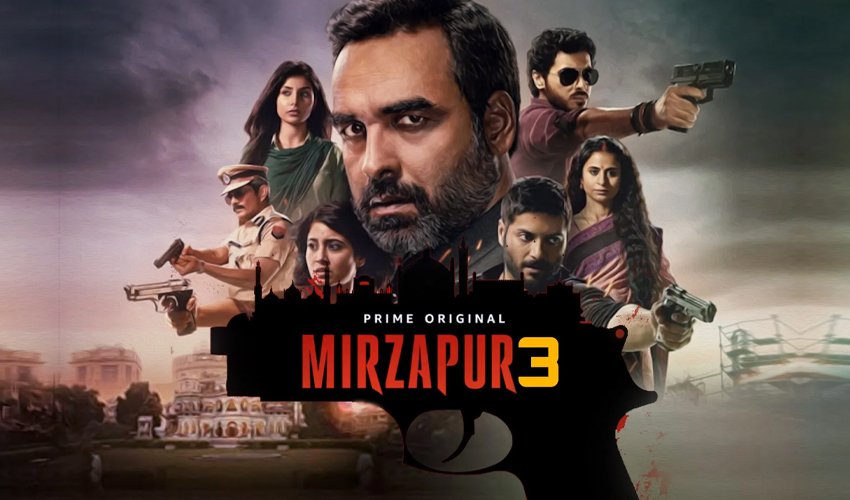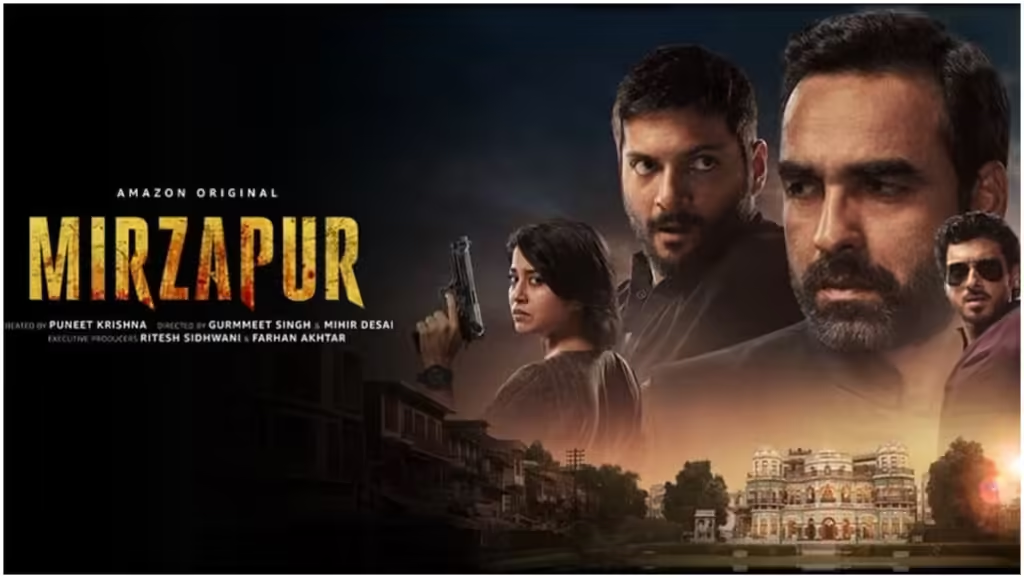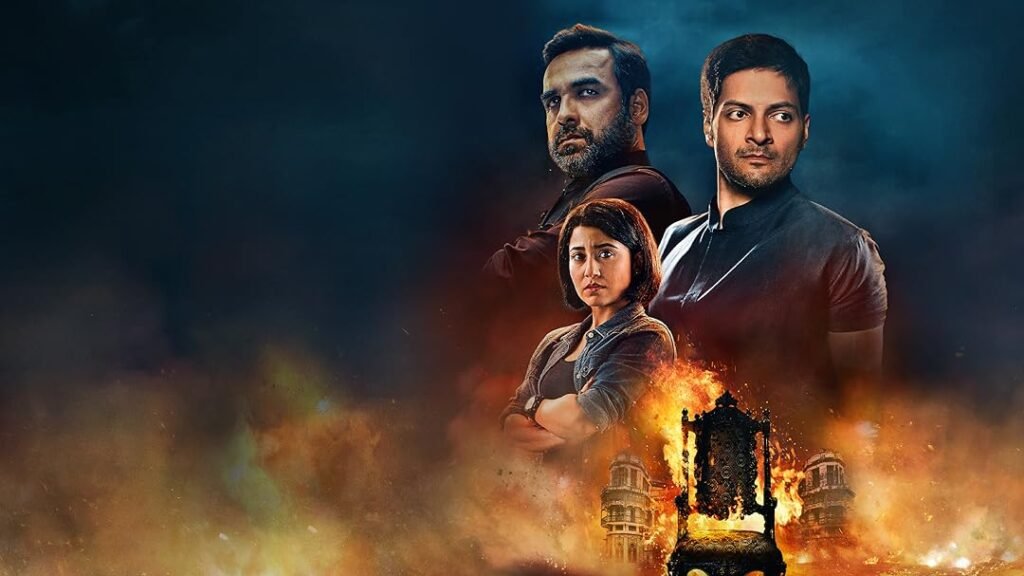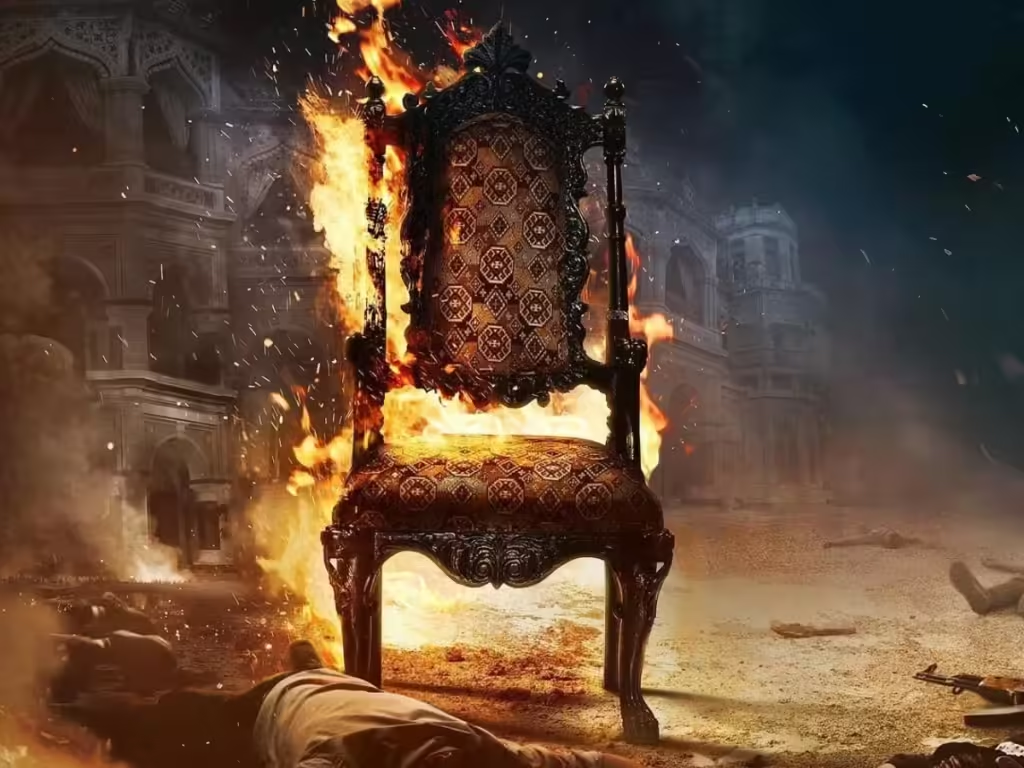Amazon Prime Video’s “Mirzapur” has been a juggernaut in the crime drama genre, with its blend of gritty storytelling, complex characters, and intense violence capturing audiences from the very first season. As fans dive into the much-anticipated Season 3, it’s clear that the series continues to deliver a powerful narrative, albeit with a few changes in tone and execution. In this review, we’ll explore how Season 3 stacks up against its predecessors, the evolving dynamics of Mirzapur, and what the future might hold for this compelling saga.
The State of Mirzapur: A Shaky Reign
Season 3 picks up where the previous season left off, with Guddu Pandit (Ali Fazal) now seated on the throne of Mirzapur. The power vacuum left by the fall of Akhandanand Tripathi (Pankaj Tripathi) creates a chaotic backdrop for the new power struggles that ensue. Guddu and his partner-in-crime, Golu Gupta (Shweta Tripathi Sharma), face a town rife with uncertainty and violence as they attempt to solidify their control.
Guddu’s ascension to power, however, is far from smooth. The season introduces a more tempered approach to storytelling, focusing less on high-octane violence and more on the slow-burn tension that characterizes this chapter. Guddu’s struggles with his newly acquired power, combined with his personal vulnerabilities and strategic errors, make for a compelling watch but also reflect a shift from the more immediate and visceral conflicts seen in earlier seasons.
Shifting Dynamics and Character Development
One of the most significant changes in Season 3 is the reduced presence of Kaleen Bhaiya, who is largely incapacitated following the events of Season 2. Pankaj Tripathi’s role is limited, with Kaleen Bhaiya spending much of the season recovering from a coma. Despite his diminished presence, his legacy and the shadows of his influence continue to loom over Mirzapur, affecting the ongoing power struggles.
Guddu’s journey this season is mark by his attempts to overcome personal and political obstacles. He grapples with a recent injury and returns to his passion for bodybuilding, symbolizing his desire to regain strength both physically and politically. This personal journey adds depth to his character but also highlights the internal and external conflicts that define his reign.
Golu Gupta emerges as a central figure alongside Guddu, demonstrating both resilience and strategic acumen. Her role is critical as she navigates the treacherous waters of Mirzapur’s underworld, but her character’s evolution is somewhat overshadowed by Guddu’s more dramatic arc.
The political landscape also sees notable changes, with Chief Minister Madhuri Yadav (Isha Talwar) intensifying her campaign to rid Purvanchal of its violent elements. Her alliance with Inspector-General Vishudanand Dubey (Manu Rishi Chadha) and her relentless pursuit of Guddu add a layer of political intrigue to the narrative. The CM’s tactics, including bending the rules to secure her position, underscore the moral ambiguity that pervades the series.
A Slower Burn with Strategic Intrigue
Mirzapur Season 3 embraces a slower, more methodical pacing compared to its predecessors. This shift might feel like a departure from the fast-paced, high-stakes action that characterized the first two seasons, but it allows for a deeper exploration of character motivations and political machinations. The season’s focus on strategic moves, clandestine meetings, and intricate plots adds a layer of sophistication to the series.
This deliberate pacing opens the door for some surprising narrative developments. The season’s climax features unexpected twists and unresolved plot points, suggesting that the battle for Mirzapur is far from over. The final episodes set the stage for potential future conflicts, leaving viewers eager for what might come next.
Violence and Its Impact
Season 3 retains the series’ hallmark of intense violence, though the scale of the confrontations is somewhat reduce. While there are fewer large-scale shootouts compare to the wedding massacre of Season 1 or the bloodbath of Season 2, the violence remains impactful. A particularly unsettling sequence involves Guddu’s brutal attack on an acquaintance, reflecting the character’s inner turmoil and the show’s willingness to explore darker themes.
The portrayal of violence in Season 3 continues to serve as a commentary on the brutal reality of life in Mirzapur. It reinforces the series’ central theme: the destructive nature of power and the personal costs of ambition. The violence is less about spectacle and more about its psychological and emotional ramifications.
The Role of Women in Mirzapur
The women in Season 3 are position as either passive observers or active participants in the violence that engulfs Mirzapur. Characters like Madhuri and Golu are deeply involve in the power struggles, while others, such as Beena Tripathi (Rasika Dugal) and Guddu’s mother Vasudha Pandit (Sheeba Chaddha), represent voices of reason amidst the chaos. Their roles highlight the gender dynamics within the series and the impact of the ongoing conflict on women’s lives.
The show continues to explore these dynamics with a nuanced approach, portraying women as both victims and agents of change. However, their narratives are often overshadowed by the more prominent male characters and their power struggles.
Performances and Direction
The performances in Season 3 are, as always, a highlight. Ali Fazal carries the show with a strong performance as Guddu, reflecting both his character’s physical and emotional struggles. Shweta Tripathi Sharma’s portrayal of Golu is compelling, though her character’s development takes a backseat to Guddu’s arc.
Pankaj Tripathi, despite his reduced screen time, remains a formidable presence, even in his incapacitated state. The supporting cast, including Isha Talwar, Manu Rishi Chadha, and others, contribute significantly to the season’s depth and complexity.
The direction by Gurmmeet Singh and Anand Iyer maintains the show’s gritty aesthetic while embracing the slower pace and strategic intrigue of Season 3. The script, written by Apurva Dhar Badgaiyann, Avinash Singh, and Vijay Narayan Verma, ensures that the series remains true to its roots while exploring new narrative directions.
Conclusion: A Promising Future?
“Mirzapur Season 3 Reviews” reveal a season that, while different in tone and execution, continues to captivate with its intricate storytelling and complex characters. The shift to a slower, more strategic narrative offers a fresh perspective on the power struggles within Mirzapur, setting the stage for future developments.
As the season concludes with surprising twists and unresolved threads, it’s clear that the battle for Mirzapur is far from over. Whether the series will continue to evolve or return to its high-octane roots remains to be seen, but one thing is certain: the saga of Mirzapur has more stories to tell, and fans will be eagerly watching to see how it all unfolds.












